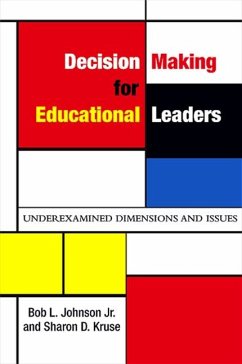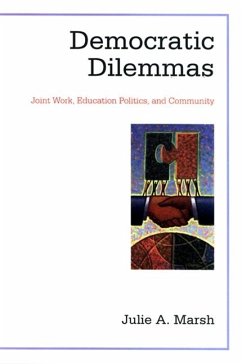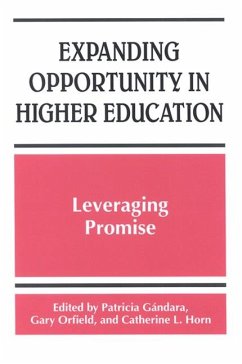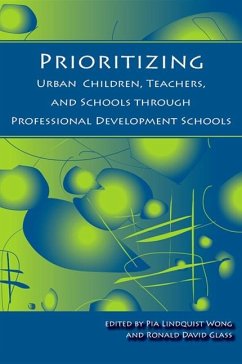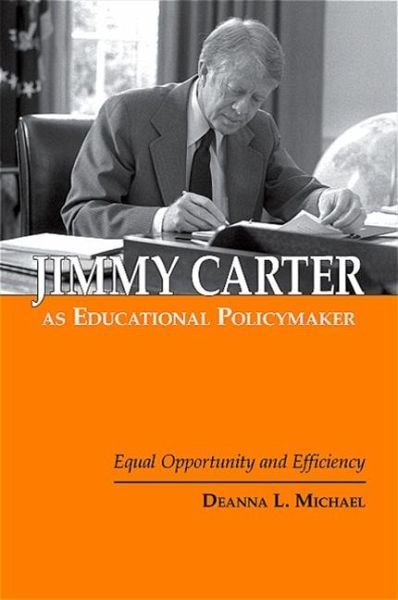
Jimmy Carter as Educational Policymaker (eBook, PDF)
Equal Opportunity and Efficiency

PAYBACK Punkte
13 °P sammeln!
Analyzes educational reform in the second half of the twentieth century through the political career of Jimmy Carter and his influence on educational policy.The United States is once again actively pursuing educational reform with the expressed goals of increasing efficiency and improving the quality of education, while leaving no child behind. Although these themes have been recast in contemporary terms, this book demonstrates that they are a continuation of the educational efficiency movement that began in the early 1900s and reemerged during Jimmy Carter's administration. Carter's involveme...
Analyzes educational reform in the second half of the twentieth century through the political career of Jimmy Carter and his influence on educational policy.
The United States is once again actively pursuing educational reform with the expressed goals of increasing efficiency and improving the quality of education, while leaving no child behind. Although these themes have been recast in contemporary terms, this book demonstrates that they are a continuation of the educational efficiency movement that began in the early 1900s and reemerged during Jimmy Carter's administration. Carter's involvement in educational policy on all governmental levels offers a unique opportunity to study the formation and implementation of educational policies on the local, state, and federal levels and to witness the centralization of educational policymaking in the latter half of the twentieth century. Deanna L. Michael explores how Carter's commitments to efficiency and planning on the one hand, and to equal educational opportunity on the other, reflect the larger national movement in educational policy. When these commitments came into conflict, Michael suggests, Carter's attempts to reconcile them reveal both his own shifting priorities and the complex social and political obstacles facing educational policymakers then and now.
The United States is once again actively pursuing educational reform with the expressed goals of increasing efficiency and improving the quality of education, while leaving no child behind. Although these themes have been recast in contemporary terms, this book demonstrates that they are a continuation of the educational efficiency movement that began in the early 1900s and reemerged during Jimmy Carter's administration. Carter's involvement in educational policy on all governmental levels offers a unique opportunity to study the formation and implementation of educational policies on the local, state, and federal levels and to witness the centralization of educational policymaking in the latter half of the twentieth century. Deanna L. Michael explores how Carter's commitments to efficiency and planning on the one hand, and to equal educational opportunity on the other, reflect the larger national movement in educational policy. When these commitments came into conflict, Michael suggests, Carter's attempts to reconcile them reveal both his own shifting priorities and the complex social and political obstacles facing educational policymakers then and now.
Dieser Download kann aus rechtlichen Gründen nur mit Rechnungsadresse in A, D ausgeliefert werden.




